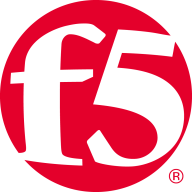

F5 Advanced WAF and Check Point CloudGuard WAF compete in the web application firewall market. While F5 Advanced WAF offers extensive features, its higher cost may deter smaller enterprises, making Check Point CloudGuard a more cost-effective option with easy integration for cloud environments.
Features: F5 Advanced WAF provides anti-bot protection, DDoS mitigation, and IP intelligence, which contribute to its robust security framework ideal for enterprise-level deployments. Check Point CloudGuard WAF focuses on API security, intrusion prevention, and AI-enhanced threat detection, making it suitable for cloud-native environments and known for its seamless API integration.
Room for Improvement: F5 Advanced WAF could improve in user interface design and report generation for better user experience and integration. The complexity of setup and pricing is also challenging for users. Check Point CloudGuard users have noted lag in administrative interfaces and insufficient documentation, suggesting areas for streamlined support and improved user guidance.
Ease of Deployment and Customer Service: F5 Advanced WAF is commonly used in on-premises and hybrid environments but can be complex without expertise. While the technical support is sound, some users experience delays. Check Point CloudGuard is preferred for cloud environments, praised for easy deployment and robust API integration, though support times can vary.
Pricing and ROI: The higher pricing of F5 Advanced WAF limits accessibility for smaller companies, though its comprehensive security features deliver a high ROI for those who can afford it. Check Point CloudGuard offers more competitive pricing, appealing to a broader range of budgets, and provides good ROI through integration with existing cloud infrastructure at a fraction of the cost.
When we are attacked, we can understand how important the solution is.
When you migrate to the cloud, it feels like saving 90% of your time.
Most of the operations happen in the background, so I do not spend much time on it.
Time savings in daily operations come from the automatic learning and signature update reducing the need for constant manual rule management, allowing the security and network teams to spend significantly less time handling false positive application-related escalations.
Subscription models offer clearer ROI due to a more competitive pricing scheme.
F5 Advanced WAF protects our organization and provides security, achieving a return on investment.
They need to increase the number of people for 24/7 support.
They were responsive even before we committed to buying their solution.
I also received full technical support, especially during the implementation.
Both response time and availability need to be improved.
F5 Advanced WAF provides the insights and notifications I need in terms of reporting and alerting.
If there is a bug, the support is usually understanding and resolves issues.
If I need to scale, I open a Whatsapp group with the director and the team, and we quickly proceed to do so.
They have sufficient resources, and there are no challenges from a scalability perspective.
Check Point CloudGuard WAF's scalability is very good.
It is very stable.
It is very stable, never crashing or giving me an error that I can see.
I did not have any issues in the last three years during which I had more than ten critical services running on CloudGuard.
F5 Advanced WAF has been very reliable and consistent for us; in our on-premise enterprise setup, it has been stable and predictable in day-to-day operations without any unexpected crashes or WAF-related downtime in production.
The provider could improve by providing better guidance and support during the configuration process.
Future releases should include better bot mitigation, behavioral anomaly detection, compliance templates, advanced threat intel integration, and streamlined multi-cloud support to boost protection and usability.
A machine learning-based adaptive mode could help the WAF learn over time and auto-tune policies.
Deployment training for F5 Advanced WAF is lacking and restricts growth by being inaccessible and costly for partners.
Overall, these are not blockers, merely enhancement opportunities, and once tuned, F5 Advanced WAF is very stable and reliable; improving usability, reporting, and onboarding would make it even more effective for larger environments.
There is excellent clarity in the LTM and the WAF.
It is more expensive than f5, where we purchased everything as bundles, and Check Point costs more, but it is worth the money.
It is less costly than Cloudflare, Fortinet, and other vendors.
I know that its price is relatively expensive compared to other products but it gives benefits that are worth it.
Licensing is capacity-driven, so you need careful planning based on traffic volume and use cases, and adding features such as Bot Protection impacts costs; once licensing is clear and sized correctly, there are no surprises.
Subscription models have competitive pricing, while perpetual licenses involve an upfront higher cost.
The price is affordable and satisfactory.
Upon implementation and evaluation with third-party penetration testing, it meets rigorous security standards required for dealing with financial institutions.
It can protect against zero-day attacks and hidden anomalies.
The solution preemptively blocks zero-day attacks and detects hidden anomalies effectively.
The Advanced Attack Signature database is very strong and regularly updated, effectively blocking SQL injections, cross-site scripting, command injections, and file inclusion attacks while allowing selective enabling or disabling of signatures to avoid blocking genuine traffic.
F5 Advanced WAF offers the best features that are capable of stopping any type of attack, and it is a really reliable and stable product that you can rely on to stop any type of attack.
The perpetual license, despite an initial higher cost, lacks transparency regarding support expiration.
| Product | Market Share (%) |
|---|---|
| F5 Advanced WAF | 7.8% |
| Check Point CloudGuard WAF | 2.2% |
| Other | 90.0% |

| Company Size | Count |
|---|---|
| Small Business | 33 |
| Midsize Enterprise | 19 |
| Large Enterprise | 16 |
| Company Size | Count |
|---|---|
| Small Business | 25 |
| Midsize Enterprise | 15 |
| Large Enterprise | 31 |
Check Point CloudGuard WAF offers advanced security for web applications and APIs with features such as intrusion prevention, bot prevention, and AI-driven threat detection, ensuring organizations achieve high-level protection and efficient security management.
Check Point CloudGuard WAF integrates with APIs, providing a seamless security enhancement while reducing false positives. Its scalability supports rapid deployment, valuable for companies aiming to secure resources in clouds like AWS and Azure. Enhanced threat prevention, comprehensive compliance support, and advanced threat protection methods such as SQL injection and cross-site scripting prevention are key strengths. Despite its robust capabilities, there are opportunities for improvement, such as lower costs, improved third-party tool integration, and a more intuitive interface to enhance usability.
What are the key features of Check Point CloudGuard WAF?Check Point CloudGuard WAF is predominantly applied within industries requiring stringent security standards, such as financial services, healthcare, and e-commerce. Its deployment strengthens the defense of critical APIs, facilitates compliance, and supports efficient multi-cloud security management, aligning well with evolving industry demands.
F5 Advanced WAF is a web application security solution for financial and government sectors, e-commerce, and public-facing websites. It offers protection against various attacks, including botnets, web scraping, and foreign entities. The solution can be deployed on-premises or in the cloud and is often used with other security tools. Its most valuable features include DDoS and DNS attack protection, SSL uploading, anomaly detection, and the ability to input custom rules.
F5 Advanced WAF has helped organizations to expose more services to the public while providing an extra layer of protection, preventing revenue loss, and securing connectivity.
We monitor all Web Application Firewall (WAF) reviews to prevent fraudulent reviews and keep review quality high. We do not post reviews by company employees or direct competitors. We validate each review for authenticity via cross-reference with LinkedIn, and personal follow-up with the reviewer when necessary.